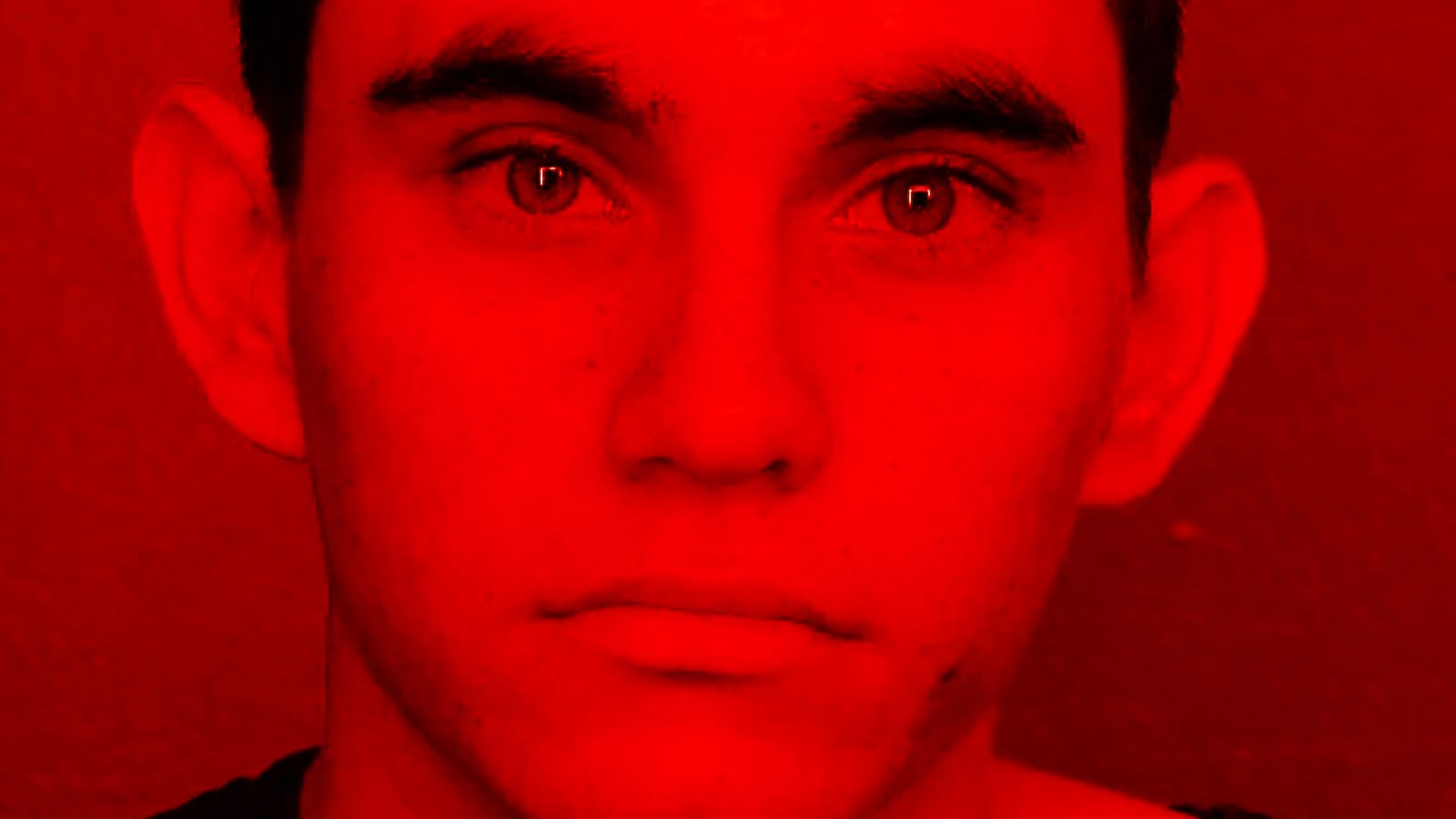On Tuesday, we learned a new, bone-chilling fact about the Parkland, Florida high school gunman Nikolas Cruz that should’ve made national headlines but didn’t. That new development was that Cruz had etched swastikas on the ammunition magazines he carried on the day he committed his brutal massacre that took 17 lives.
When I first heard of this development, my jaw dropped for two reasons. First, does anyone actually believe if Cruz had etched the words “Allah Akbar” on his gun magazines we wouldn’t have heard about that for nearly two weeks after the attack? No way. I can assure you that information would’ve been made public, intentionally or by way of a leak. And then Donald Trump would almost certainly have pounced--without waiting for additional evidence--to label this an Islamic terror attack and try to use it to further his own political agenda.
But what also was shocking is that despite this new piece of evidence, together with Cruz’s known history of hate directed at people of color and Jews, we aren’t seeing a fuller discussion in the media about whether this shooting was inspired by Cruz’s apparent white supremacist ideology.
As CNN had reported within days of the February 14 attack, Cruz had in the past spewed vile comments in a private Instagram chatroom where he shared his hatred of "jews, ni**ers, immigrants." Cruz also wrote about killing Mexicans and hating black people simply because of their skin color and he slammed Jews because in his twisted view they wanted to destroy the world.
And Cruz’s white supremacist views also made their way from the online world to the real world. One of Cruz’s classmates reportedly told a social worker that Cruz had drawn a swastika on his book back next to the words “I hate ni***rs.” He also shared with other students his “hating on” Islam and slamming all Muslims as “terrorists and bombers.” And Cruz was also seen wearing a Trump MAGA hat when he was enrolled in school well before the attack.
While initial reports that Cruz was actually a member of a white supremacist group proved to be unfounded, there’s no disputing Cruz’s documented history of spewing despicable views that line up with the white nationalist ideology. But still, given all that we’ve now learned, the question I have is: How much more evidence do we need before we discuss in earnest whether Cruz’s white supremacist views played a role in this attack?!
True, there’s no evidence that Cruz targeted any specific group of people during his rampage. But then again, ISIS-inspired terrorists who have committed acts of terror on U.S. soil, such as the man who intentionally drove a truck on a New York City pedestrian walkway in 2017 that killed eight, didn’t target any specific race or religion. He and others like him committed acts of terror in furtherance of their sick, perverted ideology—to spread terror.
And the swastikas on Cruz’s gun magazines take on a greater significance when you examine the shooting itself. Of the 17 people Cruz killed, at least five were Jewish. (Some reports note it could be six.) Even more disturbing is that Cruz had reportedly shot bullets into a Holocaust history class that killed two of those students. Did Cruz intentionally target that class since he had formerly been a student at the school? We don’t know but given Cruz’s history this is certainly a fair question. And since he’s that rare mass-shooter who’s still alive, I presume he’ll be asked.
In fact, the question of whether Cruz’s gun massacre was an anti-Semitic attack inspired by a white supremacist ideology was raised in an op-ed in the liberal Israeli newspaper Ha’aretz even before we learned about the swastikas on Cruz’s gun magazines. There, the writer noted that Cruz had expressed views “that Jews were part of a conspiracy to unseat white people from power and destroy the world.” In response to that article, the writer was subjected to an avalanche of vile anti-Semitic barbs.
Given these newly revealed swastikas, it’s long overdue that we have that conversation about whether Cruz was more than a troubled youth. And to be clear, Cruz was troubled. He had been repeatedly disciplined at school for disturbing behavior and for a period of time was placed in a special school for kids with emotional and behavior issues. On social media, he even wrote about his dream of becoming a “professional school shooter." But when he was evaluated in 2016 by a mental health professional, he was determined to be stable and not in need of being involuntarily committed to a mental health institution.
So why does it matter if we raise the question of whether Cruz’s attack was inspired by his apparent white supremacist ideology? For two reasons.
First and foremost, it may save lives. We have seen a spike in the time of Trump of white supremacist violence and activities. As the Anti-Defamation League recently documented, there were 34 extremist-related deaths on U.S. soil in 2017. A majority of those, 18, were caused by white supremacists, while nine were caused by Islamic extremists.
And as the Southern Poverty Law Center (SPLC) noted in a new report released just last week, Neo-Nazi organizations saw the greatest growth among hate groups in 2017. In fact, of the 954 active hate groups the SPLC documented in the United States in 2017, about half of the groups are white supremacist.
Secondly, we need to end the media’s hypocrisy on this issue. If Cruz had been Muslim, we know from recent history that the media would’ve labeled this a terrorist attack without the in-depth analysis into the terrorist’s mental health. But if the killer is white, the media and many in our nation prefer to believe the person is mentally ill and try to avoid labeling him a terrorist. Just look at the case of Dylann Roof, who literally stated he had executed nine African Americans because he wanted to start a “race war,” yet few in the media referred to him as a terrorist.
In time we may learn the exact reason why Cruz committed his rampage. Perhaps it was truly the act of a clinically insane individual? Or maybe it was inspired by his white supremacist ideology? But given the evidence we have about Cruz together with the recent spike in white supremacist attacks on U.S. soil, it’s time we discuss whether Cruz’s rampage was a white supremacist terrorist attack. That’s the only way we can counter this growing threat.






